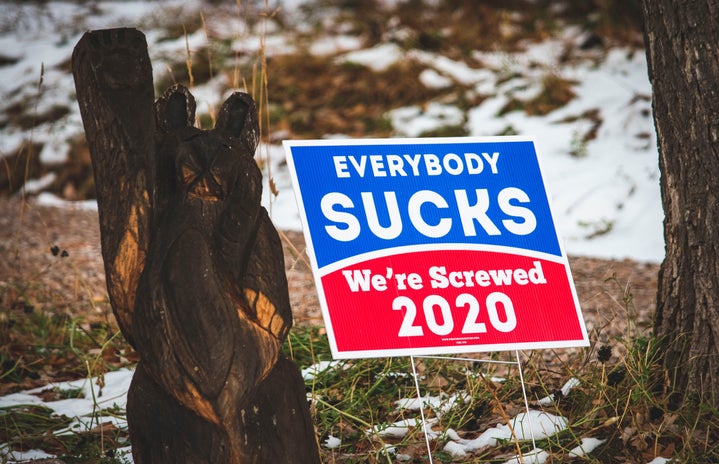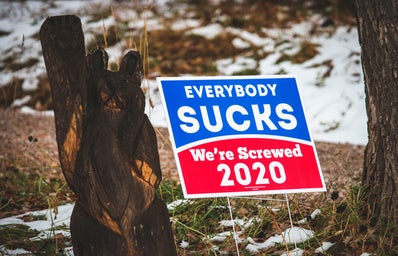If you are anything like me and are always behind on Gen Z slang, then let’s start by going over some definitions. “Stan culture” refers to the unconditional and overzealous support of someone or something. The term “stan” is often used to describe the diehard fans of celebrities, such as Taylor Swift; music genres, such as K-pop; or films and television shows, such as Star Trek. Over the past few election cycles, however, this culture has increasingly seeped into our political discourse in a toxic and unproductive way.
You may be thinking, “Okay, but what’s the big deal? So what if people love their politicians?” You can and should like politicians. You can campaign for them, feel passionately about their politics, and wear all the political merch you want, but when we apply this idealistic, celebrity-esque image onto our politicians, we fail to see them for what they are: public servants.
In recent years, social media has made politicians infinitely more accessible as they interact with voters on Twitter, Instagram Live, and even TikTok. While this increased connection strengthens our political process by increasing transparency, it has also turned many politicians into the subjects of cults of sorts: think the “Trump Train,” “Bernie Bros,” or the #KHive (Kamala Harris’ “digital army of fans”), to name a few. Every following has its toxic factions (the degree to which politicians encourage such toxicity is an entirely different issue), but stan culture has thrived on the internet, and while most supporters of these politicians, and most of us, would not identify as political stans, this kind of unquestioned loyalty has misconstrued the role of politicians and muddled voters’ expectations.
Lately, I have been thinking about my own tendency to idolize politicians since New York Governor Andrew Cuomo’s fall from grace. In the early days of the pandemic, Cuomo became a national symbol of hope amidst a chaotic and inconsistent response by the federal government with his informative briefings, not to mention his playful sparring with his brother on CNN. Recently, however, reports have surfaced that Cuomo’s administration underreported COVID deaths in NY nursing homes; Cuomo has denied these allegations, but many prominent New York politicians, including New York City Mayor Bill de Blasio and New York Rep. Alexandria Ocasio-Cortez, have spoken out against Cuomo and advocated for an investigation. When reading this news, I initially struggled to reconcile my perception of Cuomo as a national hero with his political mistakes and failings. I was focusing on Andrew Cuomo, the celebrity and public figure, not Governor Andrew Cuomo, the politician with a duty to serve his constituents.
We must try to resist the temptation of “stanning” politicians. Our admiration and support of elected officials should be grounded in their policies and performance so that we allow space for criticism and accountability. Teen Vogue articulated this nuanced approach by saying, “The perfect politician does not exist. Let’s support those we feel best represent our interests, giving them room for error but holding them accountable for decisions that cause harm.” Moving forward, let’s try to keep stan culture reserved for celebrities and television shows, rather than the elected officials who hold the awesome power of impacting our lives.


